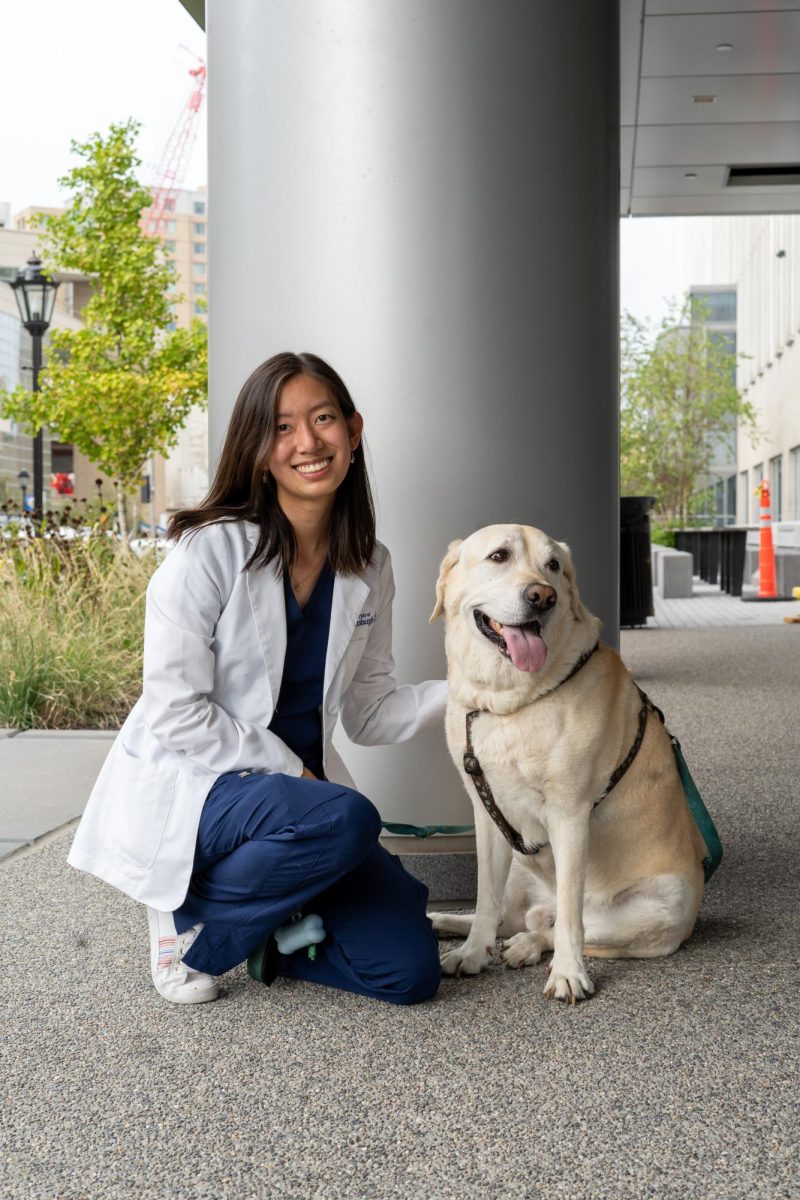Anna Li, a doctoral student at Pitt, won the Hult Prize, a year-long competition challenging young entrepreneurs to solve global issues through their own businesses, in September. The $1 million in prize money was awarded to Li’s company Korion Health, which makes medical devices for patients to use at home.
She started her company in her second year at Pitt Medical School. As a medical student during the pandemic, Li said she realized there was a need for accessible medical technology.
“Going through medical school and just seeing all the inefficiencies and feeling very frustrated by them, I could see the human impacts they were having when I was seeing my patients,” Li said. “I just kind of wanted to build something to make a difference.”
After experimenting with different types of medical equipment in the Pitt Makerspace, she built an electronic stethoscope that allows a medical patient to complete a heart and lung exam by themselves at home.
“I think one of the reasons it’s harder to do the heart and lung exam from home is because the location of where you place it is so important. It’s not like a thermometer where you stick it under your tongue. There’s not a whole lot of room for error,” Li said. “With a stethoscope, you really want to listen to each valve, and so I think our guided interface kind of enables that in a way that hasn’t been possible before.”
Once she created her product, Li said her professors told her in order to make a difference, she would have to learn to commercialize it. After seeing a pitch competition with funding from the Big Idea Center, Li applied to it and got fourth place that year. Following the competition, Li said it was highly publicized, and someone from the Hult Prize Foundation saw it and messaged her on LinkedIn.
“Someone from Hult saw it, and then he just messaged me on LinkedIn and said, ‘Hey, you’re eligible for this … You should apply,’” Li said.
Li’s company applied for the Hult Prize Boston summit, which was part of a global competition hosted in a few different areas across the world. After winning in Boston, Li advanced to the global finals in London, ultimately winning the Hult Prize.
According to Michael Doyle, associate director at the Hult Prize Foundation, there are several criteria judges look for, including clear marketing strategies and potential for world-changing impact.
“We are just looking for ideas that are aspiring to solve a global issue, and a passionate team of students who are uniquely qualified to solve the problem that they’re going after,” Doyle said.
With the money she won, Li said she hopes to use it to expedite the FDA clearance process.
“For medical devices, you need that clearance to be able to sell anything, so it would be really lovely to get that so we can start being a little bit more self-sustaining,” Li said.
To Li, the Hult Prize serves as foundation funding for her company.
“I think to me, it’s always going to feel a little bit not right, charging people for something that they might need to live,” Li said. “I just really want to make sure that whatever strategy we take is really focused on how to actually get help to people in a way that’s sustainable.”
Rhonda Schuldt, director for the Big Idea Center, said it makes them happy to see student success come from their service.
“She just won the $1 million, but there’s a lot more that’s going to come with that afterwards. Just seeing her continue to build her business and grow, it’s going to have a major impact on telehealth moving forward,” Schuldt said. “I think she’s a great inspiration and example for other students who have something that they want to do out there in the world, to just step in and just give it a shot and see where it leads you.”


